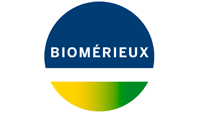U.S. Clinicians Indicate a Strong Need for New Tools to Combat Sepsis
24 July, 2008Survey shows hospital physicians, pulmonary and critical care clinicians, and researchers also concerned about overuse of antibiotics.
bioMérieux recently conducted two surveys, fielded during conferences of the American Thoracic Society and Society of Hospital Medicine, that show how hospitalists, pulmonary and critical care physicians, and researchers are unanimous in their view that new methods and technologies are needed to quickly diagnose and combat severe bacterial sepsis in U.S. hospitals.
Sepsis, a usually fatal medical condition generally caused by the body’s response to a severe infection of the blood and/or tissues, affects between 5 and 10 percent of all hospital patients, leading to an increase of about $5 billion in U.S. healthcare costs annually.
bioMérieux’s 20-minute test to detect levels of procalcitonin (PCT) – a telltale sign of systemic bacterial infection – recently received 510(k) clearance from the U.S. Food and Drug Administration to assess the risk of progression to severe sepsis and septic shock. PCT tests have been used in Europe for years. Nearly all survey respondents said such a test would represent a “dramatic improvement” to the current methods of diagnosis and care for sepsis and suspected sepsis.
Because symptoms of sepsis can be vague and overlap with other diseases, there is no gold standard for diagnosis – current methods of detection are slow and inaccurate. Of the pulmonary and critical care specialists surveyed, 69 percent viewed overlapping symptoms as the most difficult aspect of diagnosing sepsis. In fact, most clinicians reported starting empiric therapy – prescribing an antibiotic treatment immediately before an accurate and firm diagnosis is determined – because the risk of not treating suspected bacterial sepsis is too dangerous. However, according to the surveys, nearly all participating hospitalists and pulmonary and critical care specialists indicated that antibiotic resistance stemming from antibiotic misuse is a primary concern as it may have an increasing effect on the development of Superbugs.
“For decades, advancement of the diagnosis of sepsis has been limited, as doctors continue to rely on clinical clues and symptoms,” said Dr. Charles B. Cairns, Professor & Chair, Department of Emergency Medicine, UNC School of Medicine. “Yet it has been shown that early treatment can be life saving. Given the need for timely treatment, antibiotics are frequently prescribed even before bacterial infection is confirmed. This could increase the development of antibiotic-resistant bacterial strains. Healthcare professionals need new tools, like PCT, to rapidly and accurately diagnosis sepsis and severe infections in order to better tailor the use of antibiotics.” Marking a significant shift in the care of sepsis patients, 73 percent of hospitalists indicated that they now play the primary role in managing patients with suspected sepsis, while 83 percent of pulmonary and critical care specialists indicated the same. Of those surveyed, all were nearly unanimous in their desire for a rapid test that would help confirm the cause of suspected sepsis.
Of the hospitalists surveyed, the vast majority was unaware that circulating PCT levels are very sensitive to the severity of bacterial infection and closely track with the severity of that infection.1 PCT, the prohormone of calcitonin, can be produced by numerous cell types and organs after proinflammatory stimulation, especially when caused by bacterial infection. This makes PCT an ideal indicator of systemic bacterial infection and sepsis. When provided information about a new PCT test from bioMérieux, over half of hospitalists said a 20-minute biomarker test that could help with the diagnosis of a clinically relevant bacterial infection and/or sepsis would make a dramatic improvement in patient care and improve antibiotic stewardship.
1 Muller B, Becker KL, Schachinger H, Rickenbacher, PR, Huber PR, Zimmerli W, Ritz R. Calcitonin precursers are reliable markers of sepsis in a medical intensive care unit. Crit Care Med 2000;28:977-983.
About bioMérieux
Advancing Diagnostics to Improve Public Health
A world leader in the field of in vitro diagnostics for 45 years, bioMérieux is present in more than 150 countries through 38 subsidiaries and a large network of distributors. In 2007, revenues reached €1.063 billion with 84 percent of sales outside of France.
bioMérieux provides diagnostic solutions (reagents, instruments, software), which determine the source of disease and contamination to improve patient health and ensure consumer safety. Our products are used for diagnosing infectious diseases and providing high medical value results for cardiovascular emergencies and cancer screening and monitoring. They are also used for detecting microorganisms in agri-food, pharmaceutical, and cosmetic products. bioMérieux is listed on the NYSE Euronext Paris market (Code: BIM – Code ISIN: FR0010096479). Other information can be found at www.biomerieux.com or www.biomerieux-industry.com
Media Contacts
Fleishman-Hillard
Tim Baker
Tel: 216-928-3469
tim.baker@fleishman.com
bioMérieux, Inc.
Allan Mohess
Tel: 919-620-2937
allan.mohess@na.biomerieux.com

